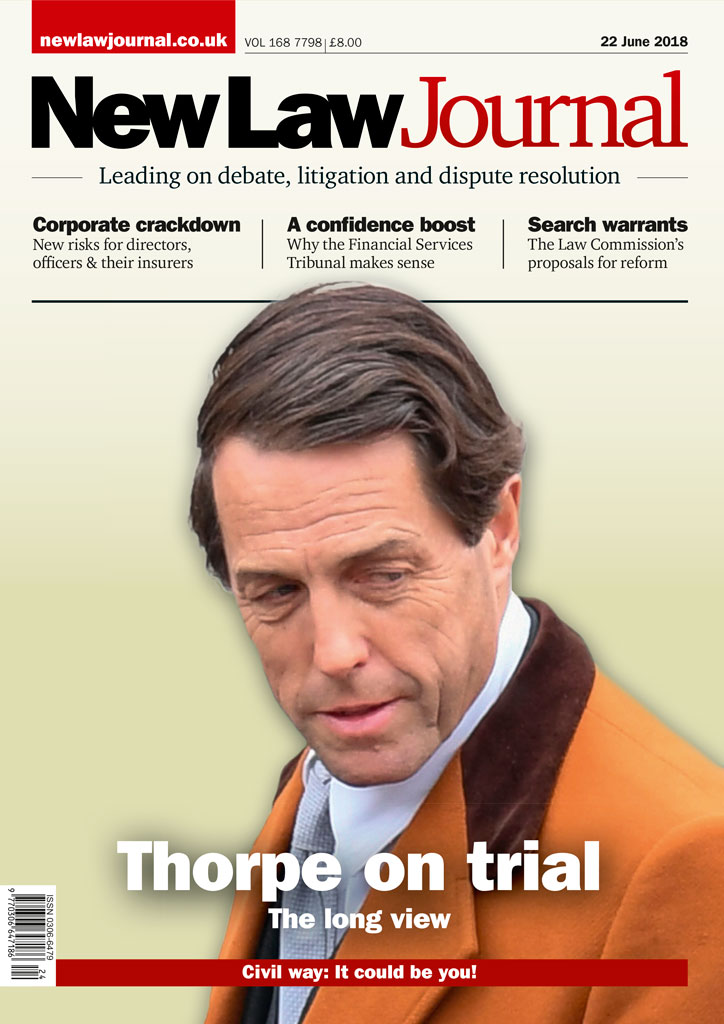
Certain aspects of Liberal MP for North Devon Jeremy Thorpe’s trial 40 years ago remain legally significant, says Alec Samuels, barrister, writing in NLJ this week.
Thorpe’s career ended in scandal following the shooting of his lover’s dog during a rumoured murder attempt, and is the subject of the recent BBC drama A Very English Scandal. Samuels says the trial makes ‘a good story and good drama, despite the passing of time. But what is the continuing legal significance of the case? Some of the legal issues have been resolved, some are still very much with us’.










